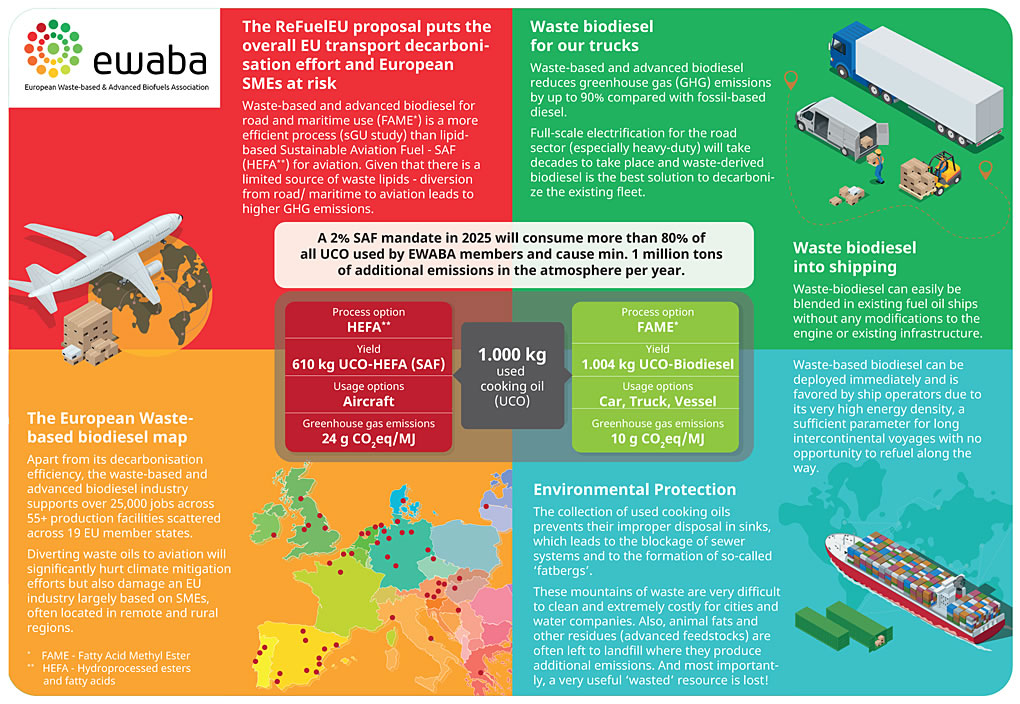Our industry in perspective
Waste-based and advanced biodiesel has been a major driving force behind a steady reduction of road/heavy duty transport emissions and it is playing an increasing role decarbonizing the maritime sector. Waste-based biodiesel using used cooking oil (UCO) achieves the highest greenhouse gas (GHG) savings on record under the revised Renewable Energy Directive (REDIII).
Over the past 15 years, our industry has been setting up collection systems to secure feedstocks that would otherwise pollute the environment and generate additional emissions, while investing heavily in plant optimization and pretreatment technologies to process low-quality wastes and residues. Fast-forward a decade and a half and the European waste-based biodiesel industry is confronting highly negative unintended consequences stemming from the draft ReFuelEU Aviation Regulation, currently under discussion.
The issue at stake
In its original draft the ReFuelEU Aviation proposal strongly relies on sustainable aviation fuels (SAF) produced from UCO. While UCO use would certainly reduce sector emissions compared with jet kerosene, in absence of a holistic approach across transport sectors the proposed legislation would signifi cantly increase emissions in transport as a whole, put enormous pressure on waste lipids such as UCO and animal fats (which have more effi cient uses), and at the same time fail to boldly promote novel and scalable SAF technologies that are essential to decarbonize aviation.
Climate in focus
By diverting waste feedstocks from road and maritime uses to aviation, transport emissions will increase as waste-based biodiesel achieves up to +90% GHG savings versus 76% GHG savings achieved by UCO-based SAF (HEFA). In short, this means that at least 1 million tons of additional GHG emissions will be released in the atmosphere already from 2025. That is of course unless European lawmakers signifi cantly improve the ReFuelEU proposal by:
- placing a hard limitation on the contribution of HEFA,
- broadening the feedstock base for SAF production, and
- establishing bolder promotion for key technologies such as e-fuels and alcohol-to jet.
Promote the best types of SAF
Using waste lipids is at the moment a comparatively cost-effective option to reduce emissions in aviation but over-relying on waste lipids in the 2025-2035 period is the wrong policy choice as the above-mentioned negative consequences far outweigh the immediate benefi ts. For these reasons certain governments have opted to support more promising novel pathways instead of waste lipids: the UK chose to focus on SAF from cellulosic residues, municipal solid waste, etc, while Germany is exclusively promoting e-fuels with a deployment stage in the mid- 2020s. Both countries have excluded waste lipids from SAF promotion. When it comes to decarbonising our economy, the EU legislator should pursue the most effi cient technologies and not pick winners and losers at the expense of net GHG emissions.
